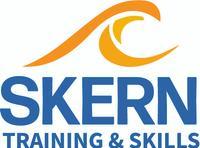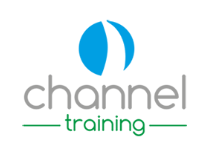- You are here:
- Homepage
- Workforce
- Apprenticeships
- Considering an Apprenticeship
- As a Student
 Level 3 Outdoor Activity Instructor Apprenticeship
Level 3 Outdoor Activity Instructor Apprenticeship
They will:
- Prepare for the session – gather information about the participants and resources for the activity.
- Deliver the session – brief participants, maintain safety, provide on-going instruction and encouragement.
- Meet session outcome – support participants to achieve set outcome (such as new skills / knowledge, thrill seeking, personal or team challenge).
- Close the session – hand-over participants, return resources and equipment, log any issues.
Outdoor Activity Instructors actively respect the environment, show a positive attitude, and are employed in outdoor adventure or education centres, nature reserves or national parks. They may undertake their apprenticeship with an employer who specialises in a particular client group (individuals or groups, specific age range, mental and physical ability) or range of activities offered. Typical job titles include Multi-Activity Leader, Environmental Education Tutor, Activity Instructor, Ranger, National Park Guide.
The apprenticeship is open to new entrants into the workplace or existing employees who need to upskill their knowledge or skills as a development pathway.
The duration of this apprenticeship is 12 to 18 months.
English and maths
Apprentices without level 2 English and maths will need to achieve this level prior to taking the End Point Assessment. For those with an education, health and care plan or a legacy statement, the apprenticeship's English and maths minimum requirement is Entry Level 3. A British Sign Language (BSL) qualification is an alternative to the English qualification for those whose primary language is BSL.
Other mandatory qualifications
None. Most employers will include a first aid qualification within the programme, but this is not mandatory.
End Point Assessment
An Independent End Point Assessor from an approved End Point Assessment Organisation must conduct the EPA.
Achievement of the apprenticeship will depend on apprentices being required to successfully complete 2 assessment methods:
- Practical test - Completion of a session plan, session observation, and question and answer
- A professional discussion supported by a portfolio of evidence
The assessment methods can be completed either on the same day or in sections over different days (making a maximum total of 3 hours and 45 minutes) to best fit the needs of the employer, the apprentice and the independent assessor. Wherever possible, completion of the practical test - observation and question and answer, and professional discussion over the course of one day is the preferred option.
Professional recognition
On completion, Outdoor Activity Instructors may be eligible to apply to be Registered Members of the Institute for Outdoor Learning to support their career development and progression.
Progression
Outdoor Learning Specialist Level 5 is a natural progress route following the completion of this apprenticeship and a couple of years industry experience.
Funding
The maximum cost of this apprenticeship is £6,000. However, depending on the size of the employing organisation and whether you are a non-levy or levy paying employer and the age of the apprentice, there is funding available (the maximum you would pay would be 5% of the overall apprenticeship cost). The apprentice does not have any fees to pay.
Apprenticeships are funded through either of the following two ways:
- The Apprenticeship Levy
- Co funded by the employer and the Education and Skills Funding Agency (ESFA)
Apprenticeship Levy Funding – Employers with a payroll of over £3m in England pay a 0.5% levy each month through their PAYE. These funds are collected and held in an online Apprenticeship Services account, only to be accessed by the employer for funding apprenticeships in their business.
Co-Funded Apprenticeships between the Employer and the ESFA (Non Levy) – Employers with a payroll below £3m in England jointly co-fund apprentices in their business. The ESFA contributes 95% of the funding for the apprenticeship and the employer contributes just 5%.
In the circumstances below, the government will fund all of the apprenticeship training and assessment costs, up to the funding band maximum of the apprenticeship:
- Employers who do not pay the levy, if at the start of their apprenticeship training the apprentice is aged between 16 and 21 years old (or 15 years of age if the apprentice’s 16th birthday is between the last Friday of June and 31 August).
- Employers who do not pay the levy, if at the start of their apprenticeship training the apprentice is aged between 22 and 24 years old and has either an Education, Health and Care (EHC) plan provided by local authority and / or has been in the care of their local authority
Employer commitments
Signing and providing the apprentice with a copy of the apprenticeship agreement.
Contributing to the apprentice's training plan.
Supporting the apprentice's learning needs.
Giving the apprentice time to complete off-the-job training during normal working hours.
Giving the apprentice time to work towards English and maths qualifications as part of their apprenticeship if they haven't already achieved the Level 2 requirement (this is not counted as part of the 20% minimum ‘off-the-job’ training).
Paying the apprentice at least the National Minimum Wage. Different wage rates apply depending on their age and the year of their apprenticeship.
Meeting employment conditions.
- Taking part in regular progress reviews with the apprentice and training provider at least every 12 weeks
- Working with the apprentice and training provider to resolve any concerns or complaints
Apprentice commitments
Before starting the apprenticeship:
- Reading and signing their apprenticeship agreement
- Discussing their training plan with the employer and training provider
- Telling their employer and training provider about any learning needs or health issues they have
- Understanding the roles of the employer and training provider during the apprenticeship
- Understanding that they need to complete OTJ hours in their training plan during normal working hours
After becoming an apprentice:
- Attending all OTJ training and providing proof of recorded hours
- Completing all learning activities, assignments, and assessments
- Taking part in regular progress reviews with the employer and training provider at least every 12 weeks
- Agreeing with the employer and training provider when they’re ready to take an end-point assessment
- Letting the employer know in advance if they can’t work
- Letting the training provider know in advance if they aren’t able to attend OTJ training
- Talking with the employer or training provider about any feedback, concerns or complaints
 Level 5 Outdoor Learning Specialist Apprenticeship
Level 5 Outdoor Learning Specialist Apprenticeship
This qualification is designed for those working in the outdoor sport, leisure, tourism, public health, youth work and education sectors. Apprentices are employed by charitable outdoor organisations, private and for-profit outdoor learning businesses, schools, expedition providers, social enterprises, etc. Outdoor Learning Specialists work within outdoor activity or education centres; outdoor adventure and activity businesses; expedition and sports tourism providers; early years, schools, colleges and universities; national parks, nature reserves and country parks; youth work and youth development organisations; health, wellbeing and social care contexts; and training and educational organisations.
The broad purpose of the occupation is the design, planning and delivery of programmes that provide progressive learning and change using outdoor activities and experiences. Typical impacts are educational achievement, personal and social development, health and wellbeing, nature connection, outdoor science, team cohesion, or practical skills development. In smaller organisations Outdoor Learning Specialists are likely to perform all duties of this standard within their role. In larger organisations their role may specialise in duties related to programme delivery, customer relationship management, staffing and team support, or safety and risk management for example. Outdoor Learning Specialists apply professional outdoor leadership judgement in order to facilitate safe and effective individual and group learning. Their technical and subject specific outdoor activity competence will have been developed through a mix of academic and vocational qualifications, and experience.
The apprenticeship is open to new entrants into the workplace but mainly for existing employees who need to upskill their knowledge or skills as a development pathway.
The duration of this apprenticeship is 24 months.
English and maths
Apprentices without level 2 English and maths will need to achieve this level prior to taking the End Point Assessment. For those with an education, health and care plan or a legacy statement, the apprenticeship's English and maths minimum requirement is Entry Level 3. A British Sign Language (BSL) qualification is an alternative to the English qualification for those whose primary language is BSL.
Other mandatory qualifications
- Ofqual registered Level 2 Award in Safeguarding appropriate to the employer's business
- Ofqual registered Level 3 2 day Outdoor First Aid Award
End Point Assessment
An Independent End Point Assessor from an approved End Point Assessment Organisation must conduct the EPA.
Achievement of the apprenticeship will depend on apprentices being required to successfully complete 3 assessment methods:
- Customer proposal report, presentation and questioning
- Observation with questions
- Professional discussion (underpinned by a logbook of evidence)
This EPA should be completed within an EPA period lasting typically for 3 months. The assessment methods can be delivered in any order. The result of one assessment method does not need to be known before starting the next.
Professional recognition
This standard aligns with the following professional recognition:
Institute of Outdoor Learning for Associate Professional
Employer commitments
Signing and providing the apprentice with a copy of the apprenticeship agreement.
Contributing to the apprentice's training plan.
Supporting the apprentice's learning needs.
Giving the apprentice time to complete off-the-job training during normal working hours.
Giving the apprentice time to work towards English and maths qualifications as part of their apprenticeship if they haven't already achieved the Level 2 requirement (this is not counted as part of the 20% minimum ‘off-the-job’ training).
Paying the apprentice at least the National Minimum Wage. Different wage rates apply depending on their age and the year of their apprenticeship.
Meeting employment conditions.
- Taking part in regular progress reviews with the apprentice and training provider at least every 12 weeks
- Working with the apprentice and training provider to resolve any concerns or complaints
Apprentice commitments
Before starting the apprenticeship:
Reading and signing their apprenticeship agreement
Discussing their training plan with the employer and training provider
Telling their employer and training provider about any learning needs or health issues they have
Understanding the roles of the employer and training provider during the apprenticeship
Understanding that they need to complete OTJ hours in their training plan during normal working hours
After becoming an apprentice:
- Attending all OTJ training and providing proof of recorded hours
- Completing all learning activities, assignments, and assessments
- Taking part in regular progress reviews with the employer and training provider at least every 12 weeks
- Agreeing with the employer and training provider when they’re ready to take an end-point assessment
- Letting the employer know in advance if they can’t work
- Letting the training provider know in advance if they aren’t able to attend OTJ training
- Talking with the employer or training provider about any feedback, concerns or complaints
 Training Providers
Training Providers
Find Training Providers for this Course Training providers for Outdoor activity instructor (level 3) (education.gov.uk)
Find Training Providers for this Course Training providers for Outdoor learning specialist (level 5) (education.gov.uk)
IOL Apprenticeship Project Contributors
Skern Training and Skills
Channel Training
Locomotivation
Kendal College
 Government Links to support
Government Links to support
Hire an Apprentice - gov.uk
Employing an Apprentice - gov.uk
 FAQs
FAQs
Will you join us in Championing Outdoor Learning?
Belong To The Leading Network of Outdoor Learning Professionals



